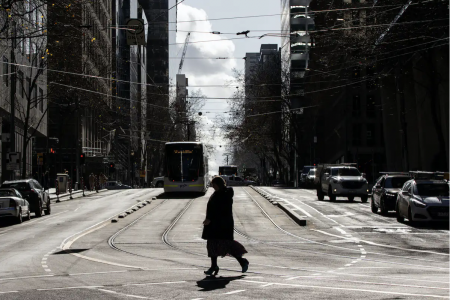SDC Rewards Member
Upgrade yours now
4 Ways We Can Recover From The Loneliness Of The Covid Pandemic
Loneliness has been a huge concern since the start of the COVID pandemic. One review published in May, which looked at loneliness studies across many countries, found loneliness was more common since the start of pandemic.
The pandemic is far from over and our social routines and decisions continue to modify and adapt based on the health crisis.
So what can we do to reconnect and recover?
National health and community leaders have identified four actions to combat loneliness. These are detailed in a white paperlaunched today at Parliament House.
Loneliness has increased since COVID
Loneliness was already a growing problem before COVID. One in four Australians reported problematic levels of loneliness before the pandemic began – an estimated 5 million Australians at any given time.Since COVID began, this has only worsened. One study that covered 101 countries found at least 21% of people reported severe loneliness, compared with only 6% who reported the same levels before the public health crisis.
Even after social restrictions were eased in Australia, the United Kingdom and the United States, a study I led found people continued to experience high levels of social anxiety, which we know adds to loneliness.
The costs of loneliness
Loneliness isn’t unusual given it’s a natural human emotion. But when ignored or not effectively addressed, it can lead to poorer physical health.Loneliness increases the risk of heart disease, stroke, diabetes, cognitive decline and poorer immunity.
It’s also associated with negative impacts on our mental health, including increasing depression, social anxiety and paranoia.
Persistent loneliness is associated with an 83% higher likelihoodof an earlier death in adults aged over 50, compared with 56% for situational loneliness (loneliness that occurs because of a specific situation and is more brief).
Due to the adverse impacts on our health, loneliness also has a negative effect on our economy. A 2021 report from Bankwest Curtin Economics Centre estimated the cost of loneliness at A$2.7 billion each year to the Australian economy, an equivalent annual cost of $1,565 for each person who becomes lonely.
Improving our knowledge for effective action
As a community, we have to understand what loneliness actually is. If we can understand what it is (and what it’s not), then we can take the right action.People often confuse social isolation with loneliness, but they are distinct. Many solutions thought to be a cure for loneliness can increase social contact, and therefore reduce social isolation, but that doesn’t mean this reduces loneliness. Loneliness is subjective, so we won’t clearly know the true impact of these solutions on loneliness unless we ask people or better measure it.
We have different social needs and also different levels of access to resources. This means what can work for one person may not work for another.
For some people, their loneliness cannot be resolved easily because there are many things contributing to it that aren’t within the person’s control. Examples include having a chronic health condition, or living in more socially deprived neigbourhoods.
A broad approach to addressing loneliness is therefore needed because once loneliness is triggered, it can be maintained through systemic barriers and policies that govern the way we live, work and play. This may require us, for example, to educate young people how to manage the dynamic nature of friendships as they transition from high school to further education and employment, or to ensure safe places and opportunities for co-workers to come together to form meaningful social connection.
This also builds the case for prevention and early intervention. Addressing loneliness earlier can mitigate the risk of developing more enduring forms of loneliness.
Australia is at risk of falling behind on addressing loneliness. There’s growing recognition around the world that addressing loneliness needs government support and policy changes. For example, the UK and Japan have appointed government ministers to address loneliness.
4 actions to address loneliness
Earlier this year, national health and community leaders gathered to develop Australia’s National Strategy to Address Loneliness and Social Isolation. This puts forward four key actions as a start, which are detailed in the white paper launched today.These four actions were developed to ensure all sectors of society are united in their understanding of loneliness. This will ensure evidence-based and cost-effective plans can be implemented to help people who feel lonely, and enable those around them to assist.
Action 1: develop a strategic framework for social connection
This involves all sectors from health, workplaces and communities coming together to develop a comprehensive evidence-based framework that can promote social connection, and address loneliness and social isolation.
Action 2: strengthen our workforce capacity across all sectors
This involves our workforce being supported to deliver evidence-based education, training, resources and practical solutions to people at risk of distressing or persistent loneliness. It involves up-skilling front-line practitioners from the health and community sectors, and people who work in our schools and workplaces, to identify and help people who are lonely.
Action 3: empower our communities to help each other
This involves increasing community awareness of the issue to ensure Australians of all ages, cultural backgrounds and many socially vulnerable groups feel able to ask for the help they need and to empower them to help others.
Action 4: invest in Australian-based scientific research
This involves significant government and industry investment in Australian-based scientific research to specifically target loneliness and to rapidly translate the evidence into practice and policy.
These actions are only the tip of the iceberg in terms of what we can do. But taking them is the first step towards addressing the rising rates of loneliness in this country.
Inaction will be costly, especially as we attempt to recover from the COVID pandemic.
This article was first published on The Conversation, and was written by Michelle H Lim, Senior Lecturer and Clinical Psychologist, Swinburne University of Technology







